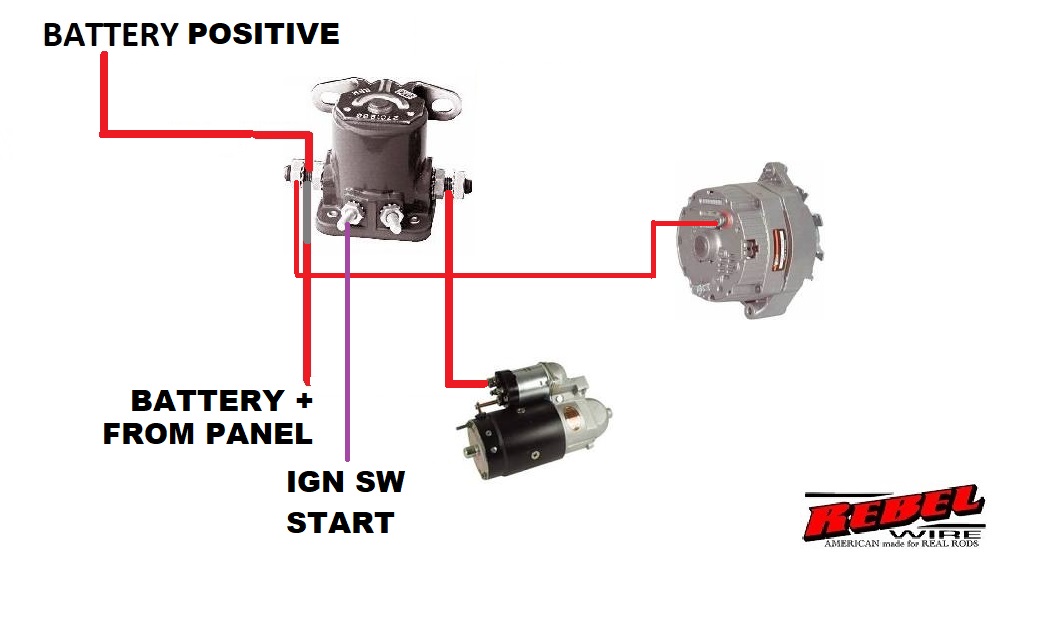Decoding the Ford Tractor Starter Solenoid
The rumble of a Ford tractor engine is a familiar sound in fields and farms across the globe. But what happens when that reassuring growl is replaced by a disconcerting click? Often, the culprit is a small but mighty component: the starter solenoid. This seemingly simple device plays a crucial role in bringing your Ford tractor to life, acting as the bridge between the ignition switch and the starter motor. Understanding its function is key to keeping your tractor operational.
The starter solenoid for a Ford tractor essentially acts as a heavy-duty relay. When you turn the key, a small electrical current energizes the solenoid, closing a high-amperage circuit. This powerful surge of electricity then activates the starter motor, cranking the engine and initiating the combustion process. Without a functioning solenoid, your Ford tractor is effectively immobilized. This reliance on a small component underscores the importance of understanding its operation and maintenance.
The history of the starter solenoid parallels the development of the electric starter itself. Early tractors relied on hand cranks, a physically demanding and sometimes dangerous method of starting the engine. The advent of the electric starter and its accompanying solenoid revolutionized tractor operation, making starting significantly easier and safer. For Ford tractors, this technological leap represented a significant step forward in efficiency and usability.
A faulty Ford tractor starter solenoid can manifest in several ways. A common issue is the dreaded "click" when you turn the key, indicating the solenoid is engaging but not delivering power to the starter motor. Other problems include a completely dead starter, slow cranking, or even a continuously running starter motor. Diagnosing these issues often involves checking the solenoid's connections, testing the battery voltage, and sometimes, replacing the solenoid itself. Understanding these potential problems is the first step towards effective troubleshooting.
The Ford tractor starting system, with the solenoid at its heart, is relatively straightforward. The ignition switch sends a small electrical signal to the solenoid. The energized solenoid then closes a circuit, allowing a large current from the battery to flow to the starter motor. This high-amperage current spins the starter, which in turn cranks the engine. Understanding this basic flow of energy can help you pinpoint the source of starting problems.
One benefit of understanding your Ford tractor's starter solenoid system is the ability to troubleshoot and potentially fix problems yourself, saving time and money on repairs. Another benefit is the preventative maintenance you can perform, such as cleaning connections and ensuring proper voltage, to prolong the life of the solenoid and other starting system components. Finally, this knowledge empowers you to make informed decisions about repairs and replacements, ensuring you choose the right parts and service for your specific Ford tractor model.
Advantages and Disadvantages of Replacing a Ford Tractor Starter Solenoid
| Advantages | Disadvantages |
|---|---|
| Relatively inexpensive repair | Can be difficult to access depending on the tractor model |
| Restores starting functionality | Requires basic mechanical knowledge |
| Can be a DIY project | Misdiagnosis can lead to unnecessary replacement |
Best Practice: Always disconnect the battery before working on any electrical components of your Ford tractor, including the starter solenoid.
Best Practice: Use a multimeter to test the voltage at the solenoid to ensure it's receiving the correct power.
Best Practice: Inspect the solenoid connections for corrosion or damage, and clean or replace as needed.
Best Practice: When replacing a solenoid, ensure you choose the correct part for your specific Ford tractor model and year.
Best Practice: After installing a new solenoid, test the starting system thoroughly to confirm the repair was successful.
FAQ: What are the symptoms of a bad starter solenoid? A: Clicking sounds, slow cranking, or no cranking at all.
FAQ: Can I test a starter solenoid? A: Yes, using a multimeter.
FAQ: Where is the starter solenoid located on a Ford tractor? A: Typically near the starter motor.
FAQ: How much does a Ford tractor starter solenoid cost? A: Prices vary depending on the model.
FAQ: How do I replace a starter solenoid? A: Disconnect the battery, remove the old solenoid, and install the new one.
FAQ: Can a bad battery cause starter solenoid problems? A: Yes, a low battery charge can prevent the solenoid from engaging properly.
FAQ: How long does a starter solenoid typically last? A: Several years with proper maintenance.
FAQ: What are some common causes of starter solenoid failure? A: Corrosion, excessive vibration, and electrical overload.
The starter solenoid on your Ford tractor, while small, is a critical link in the chain of components that bring your machine to life. Understanding its function, potential problems, and maintenance requirements is essential for any Ford tractor owner. From the earliest hand-cranked models to today's sophisticated machines, the starter solenoid has played a vital role in the evolution of the tractor. By taking the time to learn about this key component, you can ensure your Ford tractor continues to roar to life, season after season. Regular checks, cleaning connections, and understanding basic troubleshooting steps can save you time and money in the long run. Invest in understanding your Ford tractor's starting system – it’s an investment in the life and productivity of your machine.
Understanding jia jian jin gui shen qi wan a holistic approach
Unlock capcuts typography power finding the perfect font reddit approved
Mastering hvac electrical schematics your guide to symbols and diagrams











